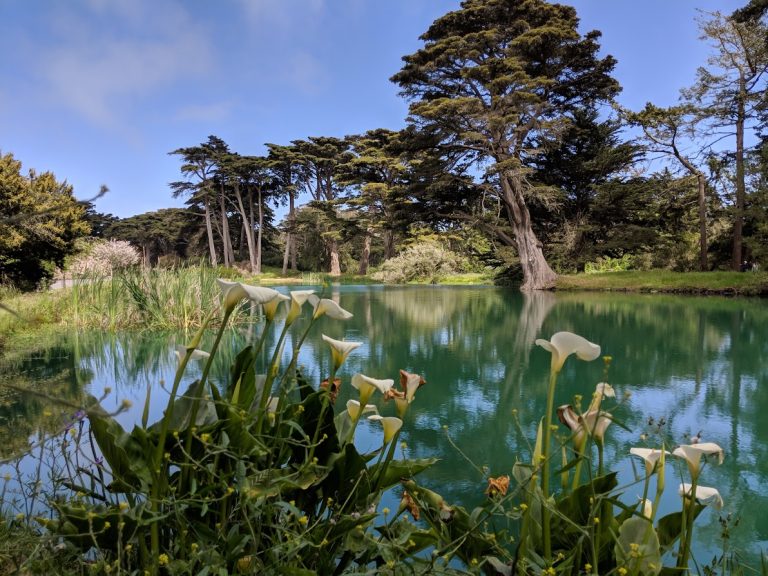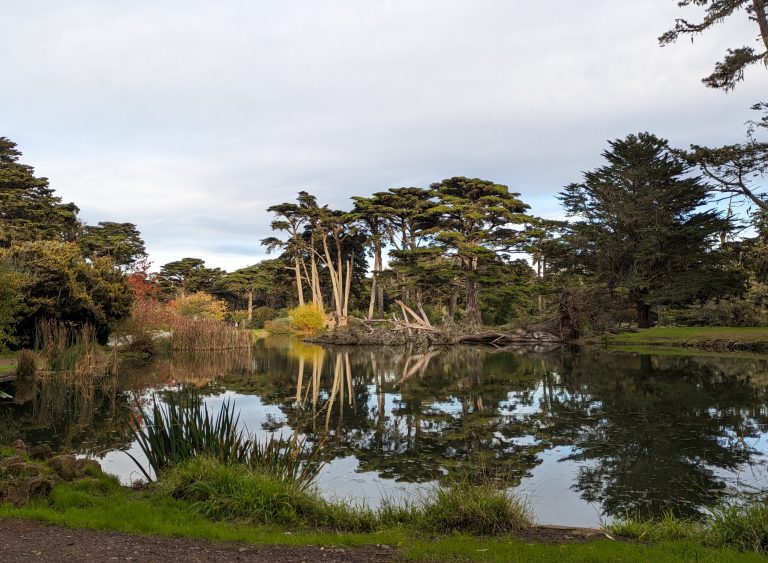Metson Lake and mono no aware (物の哀れ)
Metson Lake in Golden Gate Park was my spot. On a calm day, the water turned into a perfect mirror, reflecting the trees like a William Wendt painting. One tree made the scene. A 100-year old cypress on the south side, massive and leaning into the lake. A single root dipped into the water, as if tasting it.
For years, I would venture to the park and sit at the west end of the lake, not just looking at the tree, but taking it in—the stillness, the reflection, the way it all just was.

Then came a winter of heavy storms. When I finally returned, everything had changed. The cypress had fallen, splitting the lake in two. The scene I had admired for so long was gone.

Not long before that winter, I had been reading about mono no aware (物の哀れ), a Japanese concept that embraces the beauty of impermanence. It’s not about resisting loss. It’s about feeling it fully, understanding that nothing lasts, and finding beauty in that truth.
The fallen tree was a quiet reminder. Some philosophies teach detachment as a way to transcend sorrow and reach enlightenment. Mono no aware asks us instead to embrace it, to see the fleeting nature of things and feel their weight.
That day at the lake, I felt it in my bones. In that loss, something deeper took root.
